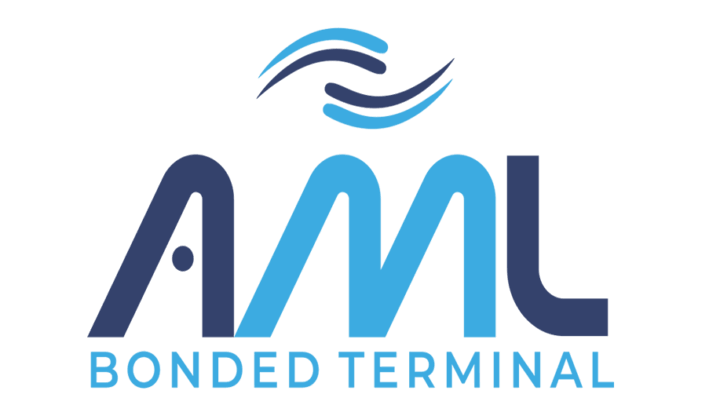A significant number of bonded terminals in Nigeria are currently operating without essential infrastructure and basic amenities, posing serious challenges to cargo handling efficiency, safety, and the overall effectiveness of port decongestion efforts. According to operators within the sector, at least 40% of these terminals lack fundamental facilities such as weighbridges, proper stacking equipment, functional scanners, and adequate lighting—conditions that compromise both service quality and operational security.
Bonded terminals are designated areas outside seaports where customs-cleared cargo is temporarily stored before being delivered to consignees. They are intended to serve as critical buffers in relieving congestion at Nigeria’s main ports, particularly Apapa and Tin Can Island in Lagos. However, terminal operators and freight forwarders are raising the alarm over the deteriorating state of many of these facilities.

Speaking anonymously to reporters, several stakeholders revealed that despite receiving substantial cargo volumes diverted from overstretched ports, many bonded terminals continue to operate in substandard conditions. Some of the terminals, they said, lack perimeter fencing and proper surveillance systems, thereby exposing cargo to theft and tampering. Others are said to function without essential customs equipment, resulting in delays and inefficiencies in the clearance process.
One terminal operator based in Lagos noted that insufficient investment in equipment and infrastructure by owners has left many facilities dependent on outdated machinery or manual handling. He lamented that the absence of modern equipment like reach stackers, forklifts, and high-capacity cranes undermines turnaround times and increases demurrage costs for importers. In some locations, cargo inspection is done in the open, exposing goods to damage from weather and theft.
Customs officials who spoke off the record acknowledged the operational gaps at some bonded terminals but attributed part of the challenge to poor regulatory compliance and the lack of standardized infrastructure requirements. They called for a comprehensive review of the criteria for terminal licensing and periodic audits to ensure continued compliance with minimum operational standards.
Freight forwarders and logistics experts have echoed similar concerns, noting that terminal inefficiencies result in costly delays that ultimately affect consumers. A senior member of the Association of Nigerian Licensed Customs Agents (ANLCA) said that many of their members have lodged complaints about unmotorable access roads, non-functional weighbridges, and congested stacking areas. He added that clearing agents are often left frustrated when terminals cannot locate or release cargo in a timely manner.
Industry analysts are warning that if left unaddressed, these infrastructure deficits could undermine the federal government’s port reform agenda. They argue that bonded terminals should serve as reliable extensions of the ports, not weak links in the logistics chain. To restore confidence, they are calling on the Nigerian Ports Authority (NPA), Nigeria Customs Service (NCS), and other relevant regulatory agencies to embark on a holistic audit of all bonded terminals in the country.
They further advised that terminals failing to meet basic standards should either be compelled to upgrade or have their licenses withdrawn to safeguard the integrity of Nigeria’s cargo handling system. The government has invested heavily in port modernization and trade facilitation efforts, but these gains are at risk if cargo evacuation points remain under-equipped and poorly managed.
In response to the criticisms, some terminal operators have defended their performance, blaming the issues on broader systemic challenges such as foreign exchange constraints, high import costs of equipment, and inconsistent regulatory enforcement. They argue that many terminals were established with limited capital and have struggled to raise funds for upgrades due to harsh economic conditions.
Others, however, are beginning to make visible improvements. A few bonded terminals in Lagos and Port Harcourt have started refurbishing their stacking yards, installing automated cargo tracking systems, and constructing covered inspection bays to protect cargo from weather-related damage. These proactive steps, industry watchers believe, should serve as a model for others.
As part of the government’s efforts to modernize logistics and reduce port congestion, attention is increasingly shifting to the condition of off-dock facilities. Experts say that ensuring bonded terminals meet minimum standards is essential if Nigeria is to achieve its vision of becoming a logistics hub for West Africa. To this end, they recommend that infrastructure development at bonded terminals be incorporated into national transport policy and backed by targeted public-private partnerships.
Ultimately, the efficiency of bonded terminals plays a key role in Nigeria’s ease of doing business rankings and trade competitiveness. With the current revelations about substandard operations at nearly half of these facilities, stakeholders agree that urgent reforms are needed to prevent further bottlenecks in the import-export value chain. For importers, freight agents, and end-users, the cost of inaction could be felt through higher prices, prolonged delays, and continued loss of confidence in the country’s logistics infrastructure.
Support InfoStride News' Credible Journalism: Only credible journalism can guarantee a fair, accountable and transparent society, including democracy and government. It involves a lot of efforts and money. We need your support. Click here to Donate
